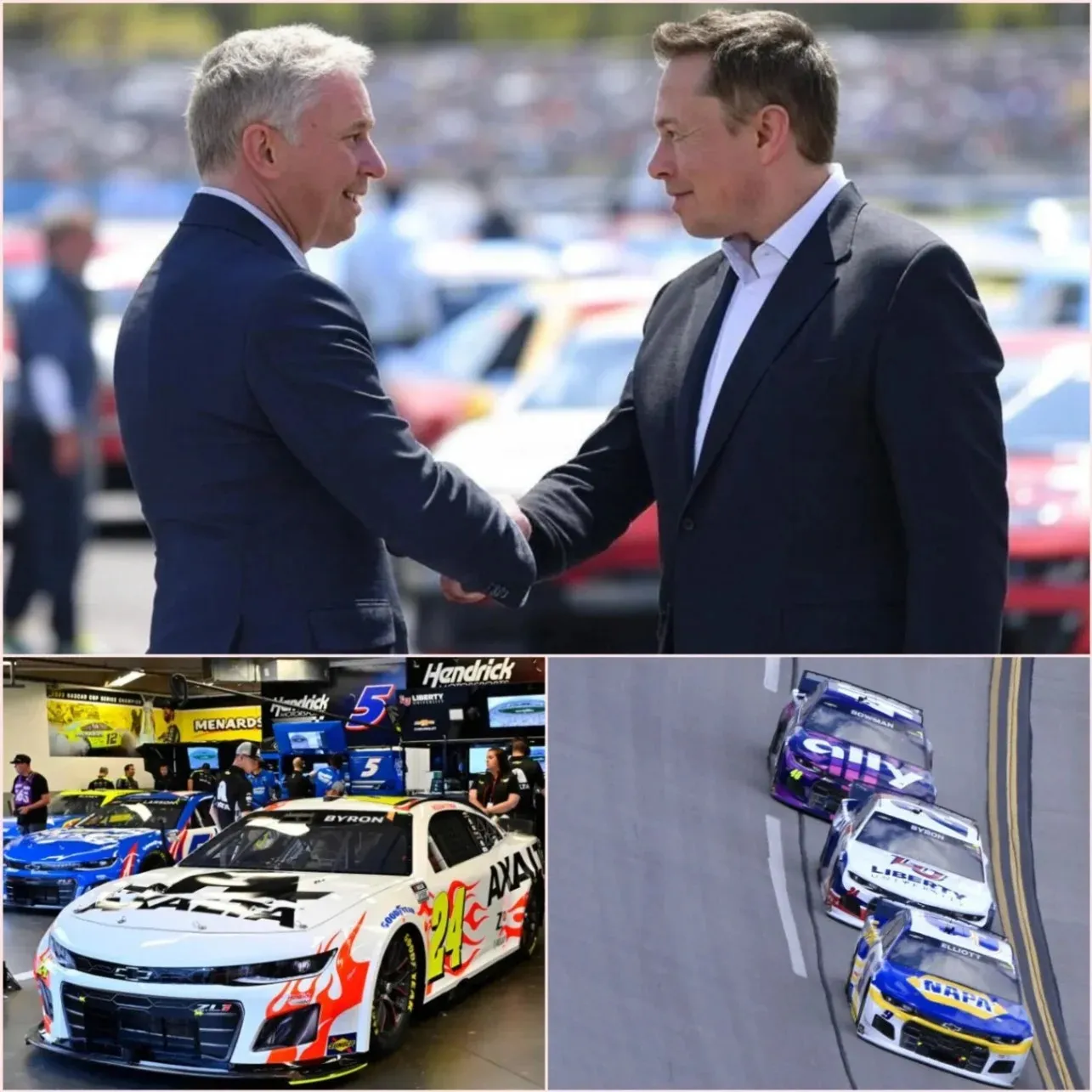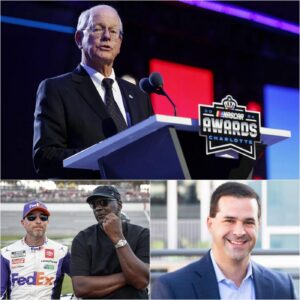In a surprising development that has captivated both the automotive and motorsports communities, billionaire entrepreneur Elon Musk is reportedly in discussions to join forces with Hendrick Motorsports to develop a high-tech supercar aimed at dominating NASCAR, the world’s premier stock car racing series. This potential collaboration could mark a significant shift in NASCAR’s technological landscape, blending Musk’s innovative prowess with Hendrick’s storied racing legacy.

Hendrick Motorsports, founded by Rick Hendrick, is renowned for its success in NASCAR, boasting numerous championships and a reputation for engineering excellence. The team recently celebrated its 10th Daytona 500 victory, with driver William Byron securing back-to-back wins in 2024 and 2025. Byron’s latest triumph was particularly noteworthy, as he skillfully navigated late-race chaos to clinch the win, underscoring the team’s strategic acumen and resilience.

Elon Musk, the visionary CEO behind Tesla and SpaceX, has a well-documented history of disrupting traditional industries with cutting-edge technology. His interest in NASCAR aligns with his broader ambition to revolutionize transportation and energy sectors. Musk’s potential entry into NASCAR could introduce electric vehicle technology and autonomous driving features to the sport, reflecting a growing trend towards sustainability and innovation in motorsports.
This isn’t the first time Hendrick Motorsports has ventured into groundbreaking projects. In 2023, the team partnered with NASCAR, Chevrolet, and Goodyear to develop a modified Next Gen Chevrolet Camaro ZL1 for the 24 Hours of Le Mans. This collaboration aimed to showcase NASCAR’s technological advancements on an international stage, participating in the “Garage 56” category reserved for innovative vehicles. Chad Knaus, Hendrick’s vice president of competition, led the project, emphasizing the team’s commitment to pushing the boundaries of automotive engineering.
Musk’s potential involvement with NASCAR has sparked a mix of excitement and skepticism among fans and industry insiders. While some enthusiasts welcome the infusion of new technology and the prospect of electric race cars, others express concern about preserving NASCAR’s traditional identity, deeply rooted in gasoline-powered engines and the visceral thrill they provide.
The integration of Musk’s technological innovations could lead to significant changes in NASCAR’s operations. Potential developments include the introduction of electric or hybrid powertrains, advancements in vehicle aerodynamics, and the incorporation of autonomous driving technologies to enhance safety. Such changes would align with global trends in the automotive industry, where sustainability and technology are becoming increasingly paramount.
However, transitioning to these new technologies presents challenges. NASCAR’s existing infrastructure, regulations, and fan expectations are deeply intertwined with traditional internal combustion engines. Implementing electric vehicles would require substantial investments in new technologies, retraining of personnel, and possibly redefining race formats to accommodate different performance characteristics and energy requirements.
Despite these challenges, the potential partnership between Elon Musk and Hendrick Motorsports represents a bold step towards the future of racing. By combining Musk’s innovative approach with Hendrick’s racing expertise, NASCAR could position itself at the forefront of technological evolution in motorsports. This collaboration may not only enhance the competitiveness of the series but also attract a new generation of fans interested in the convergence of technology and sports.
As discussions continue, the motorsports world watches with keen interest. If realized, this partnership could usher in a new era for NASCAR, blending tradition with innovation and setting the stage for a redefined racing experience in the years to come.





